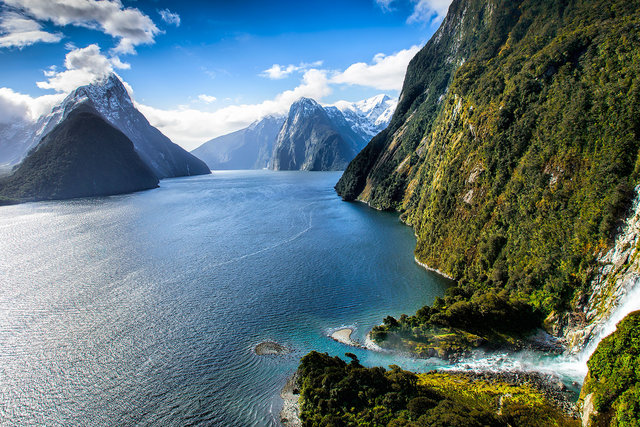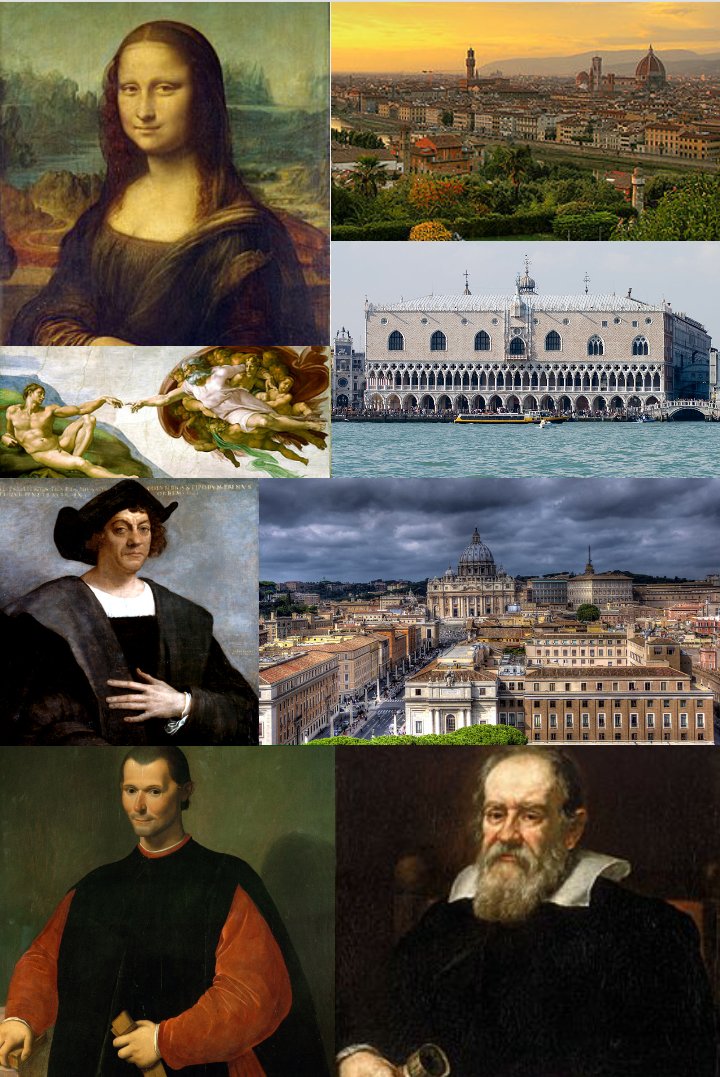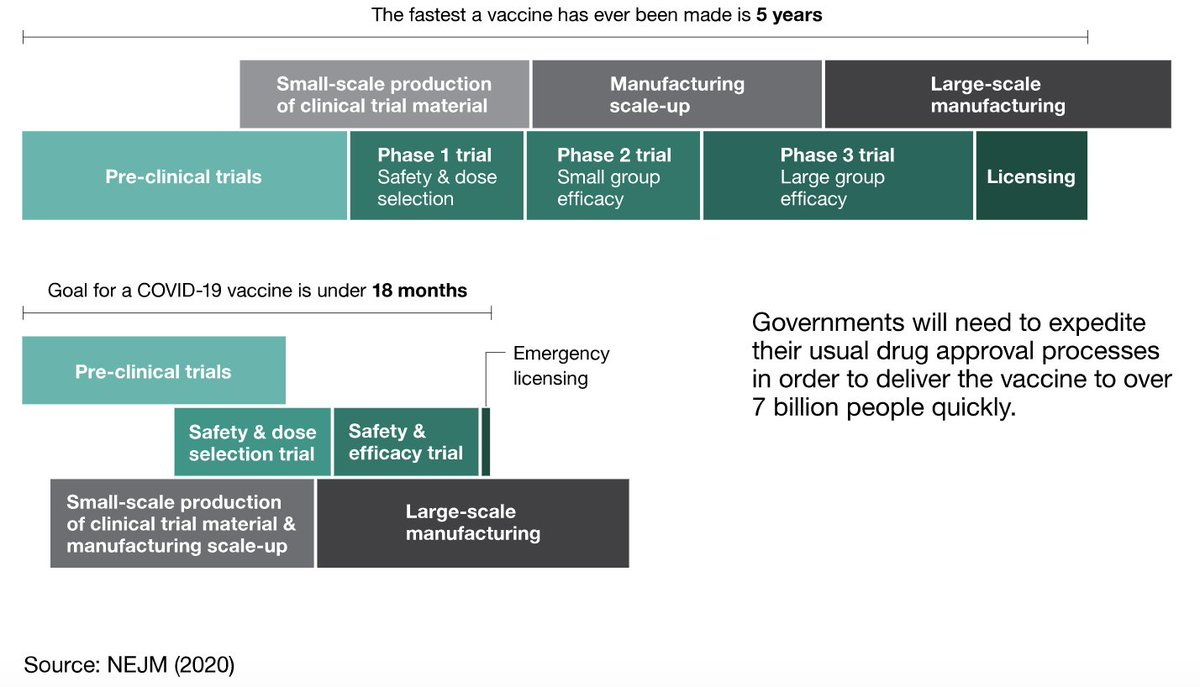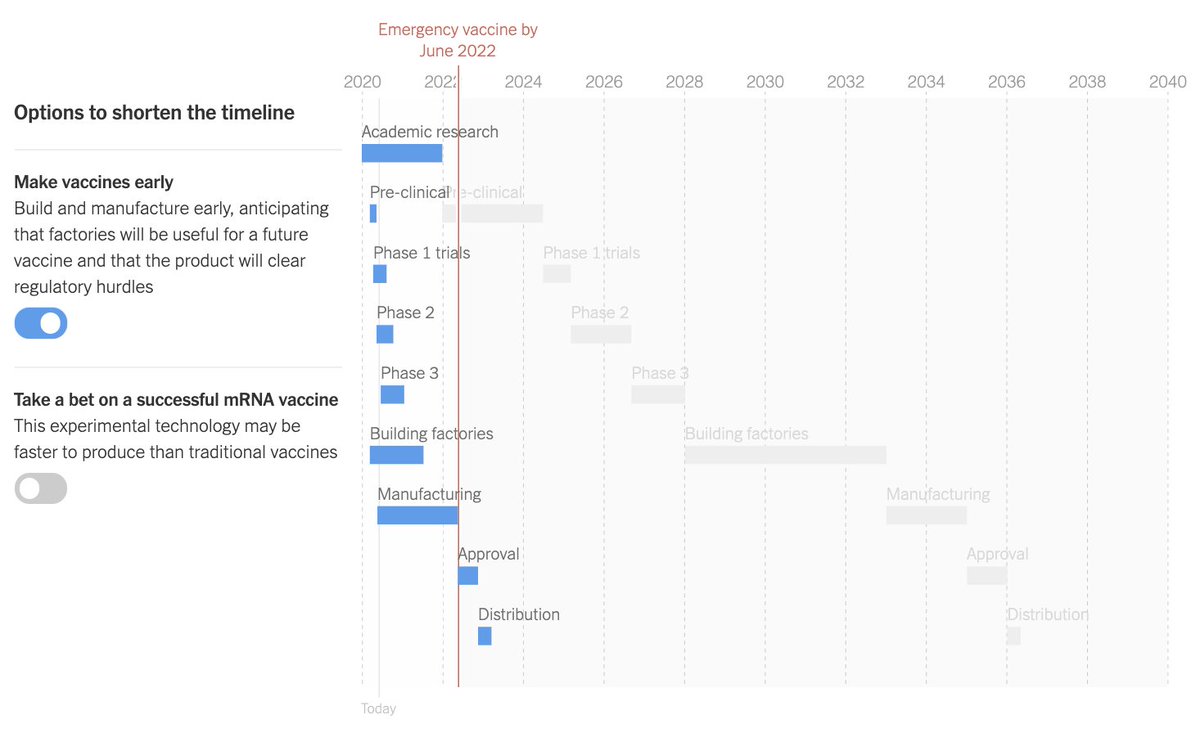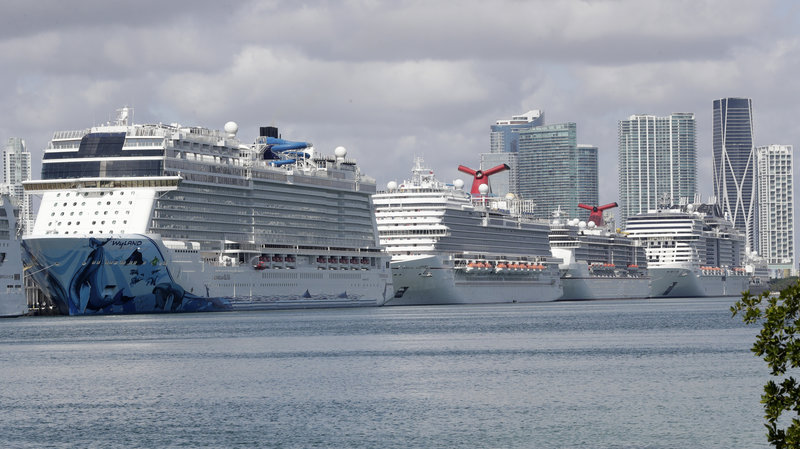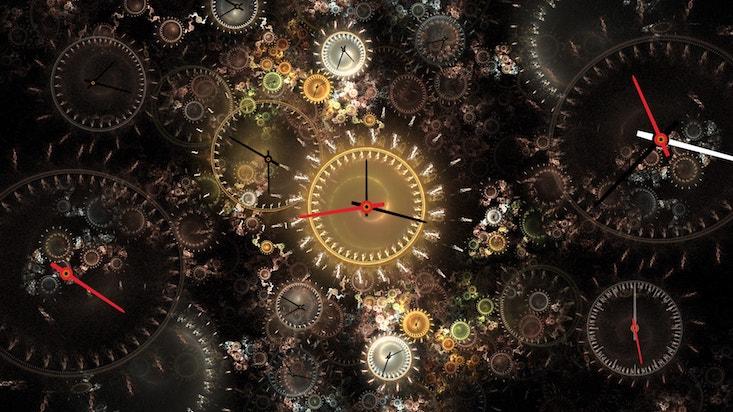I am a time-traveller from 2025. I lived through the events of 2020 which ruptured the fabric of society as we knew it then. As humans, we adapted, and survived.
Here is what my world looks like now. This is my new normal.
A thread..
Here is what my world looks like now. This is my new normal.
A thread..
Firstly, we still don& #39;t have a COVID-19 vaccine available to billions of us worldwide. Key people in society and government were the first ones to get it, and rest of us are waiting.
So while we wait, society has adapted to prevent COVID-19 from spreading rapidly ever again.
So while we wait, society has adapted to prevent COVID-19 from spreading rapidly ever again.
Masks are now as essential as shoes when going outside. Everybody wears them.
A "bare mouth" is scoffed at in our society now, when in public.
There is a mask for every occasion, and most of us now have a mask closet.
A "bare mouth" is scoffed at in our society now, when in public.
There is a mask for every occasion, and most of us now have a mask closet.
Health is now not just an individual& #39;s "guarded secret" where it concerns communicable diseases.
For eg, if you have fever, it has to be recorded in this public system, and it is a part of your profile - so that every place you visit or person you meet is aware in real-time.
For eg, if you have fever, it has to be recorded in this public system, and it is a part of your profile - so that every place you visit or person you meet is aware in real-time.
Social distancing never went away.
Governments eventually imposed a "Density Tax", which makes any physical aggregation expensive according to a graded scale.
The phobia of being in other people& #39;s immediate vicinity also developed into a natural habit.
Governments eventually imposed a "Density Tax", which makes any physical aggregation expensive according to a graded scale.
The phobia of being in other people& #39;s immediate vicinity also developed into a natural habit.
But this meant that virtual time slots to get on the train, to go to a government office, to go anywhere and everywhere became a part of life.
We all wait virtually, and when it is socially distanced safe as determined by the system + our phone, only then we enter a facility.
We all wait virtually, and when it is socially distanced safe as determined by the system + our phone, only then we enter a facility.
The "cost" of physical aggregation has meant the society now runs entirely on the Internet.
There are now many new billion dollar startups which didn& #39;t even exist when 2020 started, but which figured out a way to help the society adapt with delightful and breakthrough products.
There are now many new billion dollar startups which didn& #39;t even exist when 2020 started, but which figured out a way to help the society adapt with delightful and breakthrough products.
Longer wait times have meant restaurants can service very few people at a time only, thus having to raise prices, which has meant for most of us it is now a once-in-a-while moment only.
Most of us get our food from safe pickups, delivery, warehouse-kitchens or cook ourselves.
Most of us get our food from safe pickups, delivery, warehouse-kitchens or cook ourselves.
Cinemas never really recovered. They tried socially distanced seats - but that just wasn& #39;t economically viable enough.
Now every movie releases on a streaming service. People get-together virtually, have popcorn, at home, and still enjoy.
Sigh, I do miss the cinema experience!
Now every movie releases on a streaming service. People get-together virtually, have popcorn, at home, and still enjoy.
Sigh, I do miss the cinema experience!
Religion underwent its biggest transformation in over 500 years. Old religious buildings have now become humanitarian service centers, while religion has moved online. There are many more religions now though, and at some level, they are like an interest group someone belongs to.
Sporting event tickets got a lot more expensive due to the Density Tax and social distancing. Audience cheers from home are now streamed into the arena to encourage the athletes.
We are able to order a drink and nachos to be home-delivered along with our home-access tickets.
We are able to order a drink and nachos to be home-delivered along with our home-access tickets.
Physical bookstores did not recover beyond 2021 as it was just too tough to maintain COVID-19 prevention/cleanliness in a place where books are browsed through by many people.
But while bookstores went down, the number of books being written and sold is 10x what it was in 2020.
But while bookstores went down, the number of books being written and sold is 10x what it was in 2020.
Given the large, and sudden displacement of jobs from the in-person service sector (robots replaced cashiers everywhere..) - the government on its part created a volunteer, but paid "Service Corps" for people to re-deploy in helping the society function effectively and humanely.
Most of the firms which went "work from home" for 6 months+ in 2020, never really returned to offices in a meaningful way.
They became permanent work from home. It became simply too risky for a firm to expose its CEO and other key people to the virus through in-person meetings.
They became permanent work from home. It became simply too risky for a firm to expose its CEO and other key people to the virus through in-person meetings.
Maintaining a facility to be COVID-19 free became a domain expertise; startups emerged here which helped aggregate people in office-like safe, sanitary and productive work environments close to where they already lived.
Home offices became shared amongst trusted participants.
Home offices became shared amongst trusted participants.
Given the strain on the transit system and reduction in carpooling, governments ensured electric cars became extremely cheap.
Now people drive around by themselves, and carpooling is a niche activity where the health status of co-passengers is verifiably known in real-time.
Now people drive around by themselves, and carpooling is a niche activity where the health status of co-passengers is verifiably known in real-time.
Travel is now a virtual experience.
Through a combination of paid real-life travellers and immersive tech, we are able to go on almost any trip, and bring back memories as if they were our own.
Today evening I am going to travel to the Roman Colosseum in real-time. $50 ticket!
Through a combination of paid real-life travellers and immersive tech, we are able to go on almost any trip, and bring back memories as if they were our own.
Today evening I am going to travel to the Roman Colosseum in real-time. $50 ticket!
I hear for an extra $25, I can upgrade my Colosseum experience to include the ability to remotely pilot a drone and just look around, with my new Apple iBrowse.
Something like those alien UFO videos officially confirmed back in 2020 where they were skimming oceans, for fun https://abs.twimg.com/emoji/v2/... draggable="false" alt="🛸" title="Flying saucer" aria-label="Emoji: Flying saucer">
https://abs.twimg.com/emoji/v2/... draggable="false" alt="🛸" title="Flying saucer" aria-label="Emoji: Flying saucer">
Something like those alien UFO videos officially confirmed back in 2020 where they were skimming oceans, for fun
While politicians fought over immigration, here is what happened: fully remote firms + the willingness of someone elsewhere in the world to work EST hours, meant that salaries and jobs for many white-collar workers came under pressure in the US, even though productivity increased
The disruption in white-collar jobs triggered due to 100% work from home, which was triggered due to COVID-19 + availability of good enough tech tools, where now the global workforce competes for what were once local jobs, has been a key society disrupting event in the West.
To hire a local remote candidate vs a global remote candidate, employers now look for richer profiles, such as work done in society - signals which develop an individual& #39;s brand.
Level1 tool was LinkedIn; Level2& #39;s have been like GitHub; Level3 tools capture and present more data
Level1 tool was LinkedIn; Level2& #39;s have been like GitHub; Level3 tools capture and present more data
People are also multi-homing: working for multiple employers at a time. That is the freedom to be able to work from home + develop varied skill-sets.
We exist as avatars in our corporate lives& #39;, and these avatars are hired, assembled in dynamic teams, paid, develop a reputation.
We exist as avatars in our corporate lives& #39;, and these avatars are hired, assembled in dynamic teams, paid, develop a reputation.
My work day, in 2025, involves going downstairs in my apartment building to a shared home office, where I work with a few people working for multiple employers at the same time.
Continuous learning is now a critical aspect of life as bulk of the world is working remotely.
Continuous learning is now a critical aspect of life as bulk of the world is working remotely.
An extended period of staying at home eventually exhausted many. There are some who do travel.
In-person travel industry has re-oriented around "green zones", places which have developed efficient safety processes. But it& #39;s expensive as there are fewer socially distanced seats.
In-person travel industry has re-oriented around "green zones", places which have developed efficient safety processes. But it& #39;s expensive as there are fewer socially distanced seats.
Booking individual homes with a few days buffer in between reservations (virus dies in ~3 days) has become popular for such travelers.
Airbnb, which was written off in 2020, has emerged as the primary operator of managing this trust in places by being open with verified data.
Airbnb, which was written off in 2020, has emerged as the primary operator of managing this trust in places by being open with verified data.
While I love and enjoy my frequent virtual travel trips around the world, I am saving up for a real trip to New Zealand two years from now. I will of course subsidize it by offering a virtual ride-along to a few people, but I am excited and I look forward to the day I get here!
There are 100s of millions of kids who have been born in this new world. Big cities are getting denser, while smaller towns are also growing due to increase in remote work.
We are building more infrastructure. More people are going into skilled trades than ever before.
We are building more infrastructure. More people are going into skilled trades than ever before.
Some of my best friends are folks whom I have never met in-person. As the world went virtual, as we started hanging out more and in newer online places, our relationships evolved. Friendships not restricted to geography anymore, and new norms developed.
In 2025, we look at the post-recovery period after the events of 2020 as our modern day renaissance - where large number of networked people developed many breakthrough ideas, tools, knowledge, content across a range of domains. Society adapted learning at an unprecedented scale.
Launch of the James Webb Space Telescope (considered 100 times more powerful than the Hubble) in 2021 has increased our knowledge of the universe significantly. Its discoveries have inspired a new generation of interest in space exploration. The future, is extraordinarily bright.
Zoom emerged in the form of an AWS-like platform for consumer startups. It became a standard part of the UX/tech stack, where using Zoom in itself becoming an undifferentiated experience.
People are spending more on content than on food each month. Budgets have expanded, along with the exponential increase in high quality information. Bulk of the payments though are for very few content creators.
Long tail of creators here is unable to monetize content directly.
Long tail of creators here is unable to monetize content directly.
Secondary business model oriented around transactions has arisen.
For eg, provide high-quality write-ups about a neighborhood to prospective buyers and get a share of the real estate transaction %.
For eg, provide high-quality write-ups about a neighborhood to prospective buyers and get a share of the real estate transaction %.
Starbucks is now (in 2025..) a major consumer technology company which happens to sell coffee.
It is a platform, providing shared services and benefits to a wide range of local establishments such as a unified payment app, rewards program, order ahead, delivery and discounts.
It is a platform, providing shared services and benefits to a wide range of local establishments such as a unified payment app, rewards program, order ahead, delivery and discounts.
Across the world dating is now routine, where it exists in the virtual world, in games, Zoom, and other online places. World is getting smaller.
It seems obnoxious that just a few years ago people were trying to connect based on swiping on pictures in their local vicinity only!
It seems obnoxious that just a few years ago people were trying to connect based on swiping on pictures in their local vicinity only!
Specialized groups of workers now self-organize themselves into areas of expertise and contract out directly with multiple employers as remote consultants, enabled by some startup X which helps in administration without the overhead and costs of a Big 4 consulting firm.
Enrolment in colleges grew significantly - as they moved to a hybrid model of in-person for few students + opening up to many more online at a fraction of the cost.
The rapid spread of education over the past few years has set the stage for a fantastic future for humanity.
The rapid spread of education over the past few years has set the stage for a fantastic future for humanity.
Full stack education-to-job startups are now helping 100s of millions of people around the world, across all age groups, and all specializations.
The need to learn and adapt in a rapidly changing world simply became critical in 2020.
The need to learn and adapt in a rapidly changing world simply became critical in 2020.
In-person major conferences just never happened since 2020.
It& #39;s not that they are illegal, after all the economy was "re-opened", but that the Density Tax which identified them as one of the primary superspreader events for the spread of COVID-19 made them cost prohibitive.
It& #39;s not that they are illegal, after all the economy was "re-opened", but that the Density Tax which identified them as one of the primary superspreader events for the spread of COVID-19 made them cost prohibitive.
My doctor sees me through an AI-enabled app now. In-person doctor appointments are based on critical need, and a time-slot management system.
A doctor& #39;s knowledge which previously was artificially geo-restricted is now plugged into improving our collective global health.
A doctor& #39;s knowledge which previously was artificially geo-restricted is now plugged into improving our collective global health.
This has been the era of open health data, where it is anonymized except if communicable/with such symptoms which then becomes a "society right to know", and is aggregated.
Developers can write programs against this open data set, doctors can add to it. It continuously improves.
Developers can write programs against this open data set, doctors can add to it. It continuously improves.
Most of the hotels turned into long-term housing.
Few started renting out rooms to professionals looking for a place other than home to work from.
The ones which survived implemented a 3 day buffer between booking each room.
Few started renting out rooms to professionals looking for a place other than home to work from.
The ones which survived implemented a 3 day buffer between booking each room.
Physical retail stores oriented around pickup and delivery. Few customers wanted to touch stuff after someone else had done.
Browsing became an activity on an app or a website - and it has become the norm where these apps try and superimpose products on our real-time images.
Browsing became an activity on an app or a website - and it has become the norm where these apps try and superimpose products on our real-time images.
The previous in-store experience of asking questions from a retail sales associate (after waiting for a while in a busy store!) got replaced by connecting us with other shoppers in real-time. That made it a more social, even better than in-person experience.
Sales are higher.
Sales are higher.
Malls were mostly demolished and luxury apartment buildings were built in their place.
Few which remain have turned into well-maintained indoor parks with a ticket price to manage social distancing.
Some have tried pairing in-person browsing with online buying at the spot.
Few which remain have turned into well-maintained indoor parks with a ticket price to manage social distancing.
Some have tried pairing in-person browsing with online buying at the spot.
As a society we made a lot of adjustments, in the absence of 7 billion of us being vaccinated. All of that helped us in keeping our schools and colleges open.
We ensured children could play, learn, and keep themselves and their families safe through a series of safety processes.
We ensured children could play, learn, and keep themselves and their families safe through a series of safety processes.
It takes time to grow biological vaccines, and distribute 7-14 billion doses.
While we wait, through amplifying efforts to educate about science, while providing economic opportunities to all, the % of anti-vaccine people has come down from 25% back in 2020 to just 2.5% now.
While we wait, through amplifying efforts to educate about science, while providing economic opportunities to all, the % of anti-vaccine people has come down from 25% back in 2020 to just 2.5% now.
These past few years have been tough, but this is also the greatest generation in the history of the world. We came together at a moment of deep crisis, we learnt we are one collective system, learnt to care about people beyond our families and friends.
Make no mistake - we won.
Make no mistake - we won.
We live in an amplified scientific discovery world.
We made great advances in materials which fundamentally destroy such viruses on contact or at least repel, and those are being deployed at scale right now.
Localized geo-engineering is being tried as well.
We made great advances in materials which fundamentally destroy such viruses on contact or at least repel, and those are being deployed at scale right now.
Localized geo-engineering is being tried as well.
We have also moved on from single stream mass broadcast networks, to more meaningful, "small-world" interactions with the world around us.
Our daily use utility software are power tools, while ad-driven networks do entertain us.
Our daily use utility software are power tools, while ad-driven networks do entertain us.
Our screen time has increased to every waking hour, and that has brought its own set of challenges to our eyesight.
We now have at-home, app-driven eyesight measurement, startups with monthly food/med packages to help improve eyesight and glasses which float just above the nose.
We now have at-home, app-driven eyesight measurement, startups with monthly food/med packages to help improve eyesight and glasses which float just above the nose.
Going back to the James Webb telescope deployment in 2021, and other discoveries, at this point, space exploration is on top of our mind in 2025, with millions of eager "explorers" around the world.
We have new art, religions, concept of what it means to belong to the universe.
We have new art, religions, concept of what it means to belong to the universe.
People in 2020 might think COVID-19 is what we thought of for the foreseeable future. But there were more Black Swan events which at times delighted and at other times challenged the world.
Those deflections in the timeline have their own time-travellers writing their threads :)
Those deflections in the timeline have their own time-travellers writing their threads :)
The world eventually started working much better together, and a common pattern emerged - decisive leadership, ability to educate, inform, collaborate, and act as one system
Many of us discovered a sense of profound duty to help people around us and make the world a better place
Many of us discovered a sense of profound duty to help people around us and make the world a better place
Thank you all for tuning in. Today is a historic day in 2025 as the spacecraft "Lucy" lands on one of Jupiter& #39;s asteroids; with NASA also recently launching the "Europa Clipper" to find signs of life on Europa. Exciting times!
https://www.jpl.nasa.gov/missions/europa-clipper/">https://www.jpl.nasa.gov/missions/... https://www.nasa.gov/content/goddard/lucy-overview/">https://www.nasa.gov/content/g...
https://www.jpl.nasa.gov/missions/europa-clipper/">https://www.jpl.nasa.gov/missions/... https://www.nasa.gov/content/goddard/lucy-overview/">https://www.nasa.gov/content/g...
We knew the virus spread through superspreader events and impacts low % of those who do get infected.
But our trust is broken, and with a mask, we are communicating to each other that all of us will feel collectively safe once we are all vaccinated.
We wait, and we speak mask.
But our trust is broken, and with a mask, we are communicating to each other that all of us will feel collectively safe once we are all vaccinated.
We wait, and we speak mask.
Some context on the COVID-19 vaccine timeline:
5 yrs: The fastest a vaccine had ever been made pre-COVID-19
7 billion: Number of vaccine doses needed
18 month goal: Everyone talked about this initially back in 2020
https://www.gatesnotes.com/Health/What-you-need-to-know-about-the-COVID-19-vaccine">https://www.gatesnotes.com/Health/Wh...
5 yrs: The fastest a vaccine had ever been made pre-COVID-19
7 billion: Number of vaccine doses needed
18 month goal: Everyone talked about this initially back in 2020
https://www.gatesnotes.com/Health/What-you-need-to-know-about-the-COVID-19-vaccine">https://www.gatesnotes.com/Health/Wh...
2021 vaccine goal made an assumption about experimental RNA vaccine platform, for which distribution was a challenge as it required storage at -80 degrees C.
Without this, fastest delivery path per this NYT article was calculated as June 2022 at the time
https://www.nytimes.com/interactive/2020/04/30/opinion/coronavirus-covid-vaccine.html">https://www.nytimes.com/interacti...
Without this, fastest delivery path per this NYT article was calculated as June 2022 at the time
https://www.nytimes.com/interactive/2020/04/30/opinion/coronavirus-covid-vaccine.html">https://www.nytimes.com/interacti...
Meanwhile we adapted. Artists and athletes delighted us.
We have regular streaming sporting events, even Olympics, with empty arenas.
A massive number of new movies, TV shows, music and games were created. Celebrities started licensing their “likeness” to be used everywhere.
We have regular streaming sporting events, even Olympics, with empty arenas.
A massive number of new movies, TV shows, music and games were created. Celebrities started licensing their “likeness” to be used everywhere.
There are now billions of air-conditioners running in our homes 24x7, warming up the planet as we spend our time at home. There was the small offset from reduced travel though, but not enough
Alternative, environment-friendly home cooling tech is needed https://www.theguardian.com/environment/2019/aug/29/the-air-conditioning-trap-how-cold-air-is-heating-the-world">https://www.theguardian.com/environme...
Alternative, environment-friendly home cooling tech is needed https://www.theguardian.com/environment/2019/aug/29/the-air-conditioning-trap-how-cold-air-is-heating-the-world">https://www.theguardian.com/environme...
Since we were not commuting, usage of audio-only products declined, except music. This included podcasts, audio books, and radio-like services.
Being in front of a screen all the time meant we were either reading something or watching and listening; but not just listening.
Being in front of a screen all the time meant we were either reading something or watching and listening; but not just listening.
Regular people were able to start producing their own live TV news discussions using Zoom, with their production quality getting on par with TV news professionals who had to work from home
Inviting guests for their opinion in your personal newscast has become popular. I love it!
Inviting guests for their opinion in your personal newscast has become popular. I love it!
We developed the “Safety Net”, an evolution of the contact tracing apps of 2020.
This provided us the trust we needed in order to interact with other people who were also recently verifiably "safe" and were also interacting with other "safe" people.
This provided us the trust we needed in order to interact with other people who were also recently verifiably "safe" and were also interacting with other "safe" people.
Using the API of this platform - people started making apps to help find others to go on a hike with, for dating apps, and other purposes.
It became essential for delivery and other workers in in-person professions to have a SafetyNet live and verified profile.
It became essential for delivery and other workers in in-person professions to have a SafetyNet live and verified profile.
We re-discovered the outdoors, the national parks, camping, and many other same-family or with "SafetyNet-verified people" activities - where we were able to maintain a safe distance from others.
A screenshot from Airbnb..
A screenshot from Airbnb..
Several years later - we understand the virus extremely well.
We are not in the kind of full mandatory lockdown we had back in early 2020.
What we are in is a small state of adaptation, where we have gently nudged us all into community well-being behaviors, gradually over time.
We are not in the kind of full mandatory lockdown we had back in early 2020.
What we are in is a small state of adaptation, where we have gently nudged us all into community well-being behaviors, gradually over time.
How to take this thread:
"Accept what is, let go of what was, and have faith in what will be" - Buddha
"Accept what is, let go of what was, and have faith in what will be" - Buddha
Densely populated cities around the world have moved to a 24x7 lifestyle.
With our friends, romantic partners and work around the world, across time zones, and busy outdoors during the day, made this a natural transition.
It is now as busy at 4am as at 4pm. We have spread out.
With our friends, romantic partners and work around the world, across time zones, and busy outdoors during the day, made this a natural transition.
It is now as busy at 4am as at 4pm. We have spread out.
Luxury travelers never really returned to cruise ships even after the virus was contained, so some of them ended up getting re-purposed for housing, docked near coastal cities and helping reduce density in city core.
The worst ones became jails. Nobody wants to end up there.
The worst ones became jails. Nobody wants to end up there.

 Read on Twitter
Read on Twitter